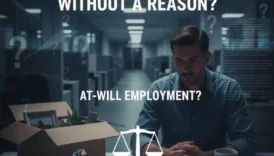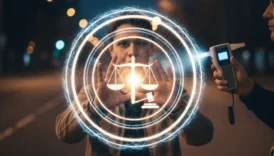Is It Legal to Record a Conversation Without Consent?

The legality of recording a conversation without the other party’s knowledge or consent depends largely on jurisdictional laws. In some places, recording is allowed as long as one person in the conversation consents (known as one-party consent laws), while other jurisdictions require all participants to give permission (two-party or all-party consent laws). Because the rules vary between states, countries, and contexts, understanding whether such recordings are legal is critical. Failing to comply with consent laws can lead to evidence being excluded in court, civil lawsuits, or even criminal penalties.
What Does Consent Mean in Recording Laws?
At the heart of recording laws is the concept of consent—permission from one or more people involved in a conversation to allow it to be recorded. While the idea may seem simple, the legal definition of consent in this context is complex and varies widely depending on jurisdiction.
General Definition of Consent
- Consent means that a person is aware of and agrees to the act of recording.
- It can be given explicitly (e.g., someone saying, “Yes, you can record this call”) or implicitly (e.g., when a voicemail system announces, “This call may be recorded for quality assurance purposes” and the person continues the conversation).
One-Party vs. Two-Party Consent
The meaning of consent differs depending on which legal standard applies:
- One-Party Consent: Only one participant in the conversation (which can be the person recording) must consent to the recording.
- Two-Party or All-Party Consent: Every participant in the conversation must give permission before the recording is lawful.
This distinction is critical: in one jurisdiction you may legally record a conversation you’re part of, while in another, doing the same could expose you to civil or criminal liability.
The Importance of Informed Consent
For consent to be valid, it must usually be informed—participants must understand that the conversation is being recorded. Secretly recording without making others aware often violates consent standards in two-party jurisdictions.
Example Scenarios
- Valid Consent: During a business call, a manager says, “I’d like to record this call for training purposes”, and the employee agrees.
- Invalid Consent: An employee records a private meeting with their boss without notifying them, in a state requiring two-party consent.
Why Consent Matters
- Protects Privacy: Recording without permission can expose personal or sensitive details.
- Prevents Abuse: Consent rules deter individuals from secretly capturing conversations for malicious or manipulative purposes.
- Legal Compliance: Consent ensures recordings are admissible in court and do not lead to fines or prosecution.
Key Takeaway
In recording laws, consent determines legality. Always check whether your jurisdiction follows one-party or two-party consent rules before recording. When in doubt, obtaining clear permission from all parties is the safest path to avoid legal consequences.
One-Party Consent States and How They Work
In the United States, the majority of jurisdictions follow one-party consent laws when it comes to recording conversations. Under these rules, only one participant in the conversation needs to agree to the recording. That person can be the one making the recording themselves, meaning you can legally record a conversation you are part of without informing the other participants—provided you are in a one-party consent state.
How One-Party Consent Works
- If you are directly involved in the conversation, your own consent is enough.
- You do not need to notify or get approval from the other person(s).
- However, if you are not a participant (e.g., secretly recording strangers without being part of the discussion), you generally need at least one party’s consent, otherwise it may be considered wiretapping.
States That Use One-Party Consent
Most U.S. states fall into this category, including:
- New York
- Texas
- Ohio
- Illinois (with certain restrictions)
- Michigan (courts interpret laws as one-party consent)
This means that in these states, if you are part of a phone call, meeting, or conversation, you can legally record it without notifying others.
Practical Example
Suppose you live in Texas (a one-party consent state) and want to record a phone call with your contractor to document verbal agreements. Because you are part of the call, your own consent is enough, and the recording is legal.
Benefits of One-Party Consent Rules
- Easier Evidence Collection: Individuals can record conversations to protect themselves in disputes without fear of breaking the law.
- Flexibility: Helpful in business, employment, and personal matters where proving what was said is important.
Risks and Limitations
- Interstate Calls: If a call involves someone in a two-party consent state, stricter rules may apply. Courts often favor the more restrictive law in these cases.
- Admissibility in Court: While the recording may be legal, judges can still exclude it if it violates ethical standards or confidentiality agreements.
- Privacy Concerns: Even in one-party states, recording without disclosure may damage trust or relationships.
Key Takeaway
One-party consent laws make recording relatively straightforward: if you’re in the conversation, you can record it legally. However, because calls and online meetings often cross state lines, always check the rules in both locations before hitting record.
Two-Party (All-Party) Consent States Explained
Unlike one-party consent jurisdictions, some states require all participants in a conversation to give permission before a recording can be legally made. These are known as two-party consent states or all-party consent states. The purpose of these laws is to provide stronger protection for personal privacy by preventing secret recordings.
How Two-Party Consent Works
- Every person involved must explicitly or implicitly agree to the recording.
- If even one participant does not give consent, the recording is unlawful.
- Consent can be verbal (e.g., “Yes, I’m okay with you recording this call”) or implied (e.g., continuing a conversation after being told it is being recorded).
States That Require Two-Party Consent
As of today, the following U.S. states generally require all-party consent:
- California
- Florida
- Pennsylvania
- Washington
- Maryland
- Massachusetts
- Montana
- New Hampshire
- Connecticut
(Note: Laws in some of these states have exceptions and nuanced applications, so individuals must review the specifics.)
Practical Example
Imagine you live in California (a two-party consent state) and want to record a business phone call. Even if you are a participant, you must notify the other person and get their permission. If you secretly record without consent, you could face civil lawsuits or criminal penalties.
Consequences of Violating Two-Party Consent Laws
- Criminal Penalties: Unlawful recording can result in misdemeanor or felony charges, fines, and even jail time.
- Civil Liability: The person recorded may sue for damages, including compensation for invasion of privacy.
- Inadmissible Evidence: Any illegally obtained recording is likely to be excluded from court proceedings.
Key Differences from One-Party Consent
| Factor | One-Party Consent | Two-Party Consent |
|---|---|---|
| Who must agree? | Only one participant | All participants |
| Secret recordings | Often legal | Generally illegal |
| Privacy protection | Lower | Higher |
| Risk of liability | Minimal (if participant) | High if consent not obtained |
Key Takeaway
In two-party consent states, secrecy equals illegality. If you want to record a conversation, always make sure everyone agrees. Failure to do so can lead to serious legal and financial consequences.
Federal Wiretap Act and Its Role
The Federal Wiretap Act, also known as Title III of the Omnibus Crime Control and Safe Streets Act of 1968, is the primary federal law governing the interception and recording of communications in the United States. While individual states may have their own rules about consent, the Federal Wiretap Act establishes a nationwide baseline.
Core Principles of the Federal Wiretap Act
- One-Party Consent at the Federal Level
- Under federal law, recording is legal if one party to the conversation consents.
- This means that if you are part of the conversation, you can legally record it under federal law.
- Prohibition of Unauthorized Interception
- It is illegal to intercept or record communications (telephone calls, electronic messages, or in-person conversations) without consent from at least one participant.
- Third parties (those not involved in the conversation) cannot secretly record without consent.
- Criminal and Civil Penalties
- Violating the Act can result in criminal prosecution, fines, and imprisonment.
- Victims of illegal recordings may sue for damages in civil court.
Interaction with State Laws
- Federal law sets the minimum requirement: one-party consent.
- States can impose stricter laws (such as two-party consent), and in those states, the stricter law applies.
- In cases involving interstate communications (e.g., phone calls between people in different states), courts often apply the more restrictive law to avoid conflict.
Exceptions Under the Act
- Law Enforcement: Police may intercept communications without consent if they obtain a valid court order (wiretap warrant).
- Publicly Accessible Communications: Some communications that are broadcast or accessible to the public are not protected.
Example Scenario
If you are in New York (a one-party consent state) and record a call with someone in California (a two-party consent state), the Federal Wiretap Act allows it under federal law, but California law prohibits it. In such cases, the stricter state law usually prevails, meaning the recording could still be illegal.
Key Takeaway
The Federal Wiretap Act establishes a baseline rule of one-party consent, but it does not override state laws. If state law requires all-party consent, that rule applies—even if federal law is more lenient. Always check both state and federal standards before recording.
Recording In-Person Conversations vs. Phone Calls
When it comes to recording, the law distinguishes between in-person conversations and telephone (or electronic) communications. While the general rules of consent apply to both, there are practical and legal differences in how courts treat recordings.
In-Person Conversations
- Consent Rules Apply: Whether one-party or two-party consent is required depends on state law.
- Expectation of Privacy: Courts often ask whether the people involved had a reasonable expectation of privacy.
- Example: A conversation in a private home is protected.
- Example: A loud discussion in a public park may not carry the same expectation of privacy, meaning recording may not violate consent laws.
- Hidden Devices: Secretly placing recording devices in private spaces (like offices, bedrooms, or cars) without consent is generally illegal.
Phone Calls
- Stricter Oversight: Many states have clearer, specific laws about recording phone calls.
- Jurisdictional Complications: Phone calls often cross state lines, raising questions about which state’s consent law applies. Courts usually apply the more restrictive rule (two-party consent if one participant is in such a state).
- Technology Factor: Automatic call recordings (such as business “quality assurance” systems) are typically legal if participants are notified.
Comparison of In-Person vs. Phone Call Recordings
| Factor | In-Person Conversations | Phone Calls |
|---|---|---|
| Expectation of Privacy | Depends on setting (private vs. public) | Stronger presumption of privacy |
| Common Jurisdiction Issues | Rare (all participants in one place) | Frequent (calls across state or national lines) |
| Notification Requirements | State laws vary | Often stricter, especially in two-party states |
| Technology Involved | Hidden mics or devices | Call recorders, apps, business systems |
Example Scenario
- In-Person: Two friends meet at a coffee shop. If one secretly records the conversation in a one-party consent state, it’s legal. If in a two-party state, it’s illegal unless the other friend agrees.
- Phone Call: A journalist in New York (one-party state) records a phone interview with someone in California (two-party state). California’s stricter law applies, and the journalist could face liability.
Key Takeaway
The main difference lies in privacy expectations and jurisdictional complexity. In-person recordings usually depend on the setting, while phone call recordings often involve stricter rules—especially when they cross state or national borders.
Workplace and Business-Related Recordings
Recording conversations in the workplace or business settings raises special legal and ethical questions. Employees, employers, and customers all have privacy rights, but those rights must be balanced against legitimate business needs such as compliance, security, and training.
Employee Recordings of Supervisors or Coworkers
- Consent Rules Apply: Whether an employee can legally record depends on whether the state follows one-party or two-party consent laws.
- In a one-party state, an employee may record a meeting they are part of without informing others.
- In a two-party state, they must notify all participants and obtain permission.
- Employer Policies: Even if legally allowed, company policies may prohibit secret recordings. Violating workplace rules could lead to disciplinary action or termination, even if the recording itself is lawful.
Employer Recordings of Employees
- Training and Quality Control: Employers often record customer service calls for quality assurance. This is generally lawful if participants are notified (“This call may be recorded…”).
- Monitoring in the Workplace: Employers may use cameras or audio monitoring in public or semi-public areas (e.g., reception, sales floor), but private spaces like restrooms or locker rooms are strictly off-limits.
- Consent Notifications: Many jurisdictions require that employees be notified in advance if monitoring or recording takes place.
Business-to-Customer Recordings
- Phone Call Recordings: Companies that record customer service calls must comply with consent laws. In two-party states, businesses often play pre-recorded disclosures to secure consent before proceeding.
- In-Person Transactions: Conversations in public business spaces may carry lower expectations of privacy, but secret recordings can still be unlawful without proper consent.
Practical Example
- Employee Recording: An employee in Texas (one-party state) records a conversation with their manager about unfair treatment. This is legal under state law but might violate company rules.
- Employer Recording: A California company records calls with customers for training. Since California is a two-party consent state, customers must be informed before the call continues.
Key Considerations in the Workplace
- Check State Consent Laws: Always verify whether you are in a one-party or two-party state.
- Review Company Policy: Even lawful recordings may lead to job consequences if workplace rules prohibit them.
- Respect Privacy Boundaries: Private conversations in protected spaces should never be recorded without explicit consent.
Key Takeaway
Workplace and business-related recordings operate at the intersection of privacy, employment law, and business interests. While recording may be legal under certain circumstances, violating consent laws or company policies can create serious legal and professional risks.
Exceptions: Law Enforcement and Public Safety
While most people must follow strict one-party or two-party consent laws, law enforcement and public safety exceptions create situations where recordings may be lawful without consent. These exceptions are carefully regulated to balance individual privacy rights with the government’s responsibility to protect the public.
1. Law Enforcement Wiretaps
- Court Authorization Required: Police generally need a wiretap warrant before intercepting or recording private communications.
- Probable Cause Standard: Similar to search warrants, law enforcement must show a judge that there is probable cause a crime is being committed.
- Scope and Duration Limits: Wiretap warrants are specific to certain conversations, people, or timeframes to prevent abuse.
2. Public Safety Exceptions
- Emergencies: In situations where there is an immediate threat to life or safety, authorities may act without a warrant to intercept communications temporarily.
- Examples:
- A kidnapping where recording communications helps locate the victim.
- A suspected terrorist plot where rapid interception may prevent an attack.
3. Public Meetings and Open Spaces
- Conversations held in public areas or official public meetings often carry no reasonable expectation of privacy. In such cases, recording may be lawful even without explicit consent.
- Example: A city council meeting broadcast on television can be freely recorded by attendees.
4. Security and Surveillance Systems
- CCTV Cameras: Many businesses and government agencies use surveillance cameras with audio recording. Legality depends on notice and jurisdiction.
- Body Cameras: Police officers increasingly use body-worn cameras to record interactions. These are typically authorized by law and fall outside normal consent rules.
5. Journalistic and Investigative Exceptions
- In rare cases, undercover journalism or investigations may involve secret recordings. Whether these are lawful depends on state laws and whether the public interest outweighs privacy concerns.
Example Scenario
Police suspect an organized crime group is coordinating illegal activities by phone. They apply for and obtain a wiretap warrant from a judge. Even though the suspects did not consent, the recordings are legal because law enforcement followed proper legal procedures.
Key Takeaway
Law enforcement and public safety exceptions allow recordings without consent, but only under strict judicial or statutory controls. These rules are designed to prevent abuse while giving authorities the tools they need to protect the public in urgent or high-stakes situations.
Penalties for Illegal Recordings
Recording a conversation without the required consent is not just a privacy violation—it can lead to serious legal consequences, both criminal and civil. The severity of penalties depends on the jurisdiction, the nature of the conversation, and whether the violation was intentional.
1. Criminal Penalties
- Misdemeanor Charges: In some states, illegal recording is treated as a misdemeanor, punishable by fines and possible short-term jail time.
- Felony Charges: In cases involving multiple violations, sensitive communications, or malicious intent (such as blackmail), illegal recording can escalate to a felony.
- Fines and Imprisonment: Penalties may include thousands of dollars in fines and prison terms ranging from months to several years.
2. Civil Liability
- Victims of illegal recordings often have the right to sue for damages.
- Civil lawsuits may seek:
- Actual damages (e.g., financial losses).
- Statutory damages (a fixed amount per violation, sometimes $5,000 or more).
- Punitive damages in cases of egregious misconduct.
- Example: An employee secretly records a private meeting in a two-party consent state. The employer sues and is awarded damages for invasion of privacy.
3. Exclusion of Evidence in Court
- Courts generally refuse to admit recordings obtained illegally.
- This means that even if the recording contains valuable evidence, it will not be considered at trial.
- For example, secretly recording a spouse in a two-party consent state to prove infidelity in a divorce case could result in the evidence being thrown out.
4. Professional and Employment Consequences
- Employees caught secretly recording against company policy may face termination.
- Professionals such as lawyers, doctors, or journalists may face disciplinary action for violating ethical codes.
5. Reputation and Personal Consequences
- Beyond legal penalties, illegal recordings can harm personal relationships, damage reputations, and erode trust.
- In high-profile cases, public exposure of unlawful recordings may result in social backlash and long-term professional harm.
Example Scenario
A person in California (a two-party consent state) records a business negotiation without notifying the other party. The recording is discovered, and the individual faces:
- Criminal charges for unlawful interception.
- Civil lawsuits from the recorded party seeking statutory damages.
- Loss of evidence since the recording cannot be used in court.
Key Takeaway
Illegal recordings carry serious risks: criminal charges, costly lawsuits, loss of evidence, and damage to reputation. The safest approach is always to secure clear consent—or avoid recording entirely—when the law requires it.
Use of Secret Recordings in Court
Even when a recording contains strong evidence, its admissibility in court depends on how it was obtained. Courts are cautious about admitting recordings that may have violated privacy or consent laws, since doing so could undermine constitutional protections.
1. Legally Obtained Recordings
- If a recording complies with federal and state consent laws, it is generally admissible in court.
- Example: In a one-party consent state, a victim records threatening phone calls from an ex-partner. Since the recording is lawful, it can be used as evidence in a harassment case.
2. Illegally Obtained Recordings
- Recordings made in violation of consent laws are typically inadmissible.
- Courts exclude such evidence to discourage illegal surveillance and protect privacy rights.
- Example: In California (a two-party state), an employee secretly records a manager without permission. The recording is not admissible in court, even if it shows misconduct.
3. Exceptions and Special Circumstances
- Law Enforcement Evidence: If obtained through a valid warrant or statutory exception, law enforcement recordings can be used.
- Public Interest Arguments: In rare cases, courts may admit recordings if public interest outweighs the privacy violation, but this is highly discretionary.
- Civil vs. Criminal Cases: Standards may differ; a court in a civil dispute may be stricter about excluding unlawfully obtained evidence.
4. Consequences of Introducing Illegal Recordings
- Attempting to use an unlawful recording in court can backfire.
- Judges may sanction the party presenting it, exclude the evidence entirely, and in some cases, order damages to the opposing party.
5. Digital and Cross-Border Challenges
- Modern technology complicates admissibility. Online meetings, international calls, and recordings across multiple jurisdictions raise questions about which laws apply.
- Courts usually apply the stricter consent rule to avoid undermining state or federal protections.
Example Scenario
A journalist records a politician in a private conversation without consent in a two-party state. Even if the recording exposes corruption, the court may exclude it from trial. However, the content could still influence public opinion outside the courtroom—highlighting the difference between legal admissibility and social impact.
Key Takeaway
Secret recordings are not automatically admissible. Courts weigh legality, fairness, and privacy concerns before allowing them. The safest evidence is always a recording obtained with clear, lawful consent.
Final Thoughts on Recording Conversations
The question of whether it is legal to record a conversation without consent highlights the ongoing tension between privacy rights and accountability. Recording laws are designed to protect individuals from intrusive surveillance while still allowing legitimate uses of recordings in business, law enforcement, and personal safety contexts.
The Core Issue: Consent
- In one-party consent jurisdictions, recording is relatively simple—you can legally record if you are part of the conversation.
- In two-party (all-party) consent jurisdictions, the bar is higher: every participant must agree.
- Understanding which rule applies is crucial before pressing “record.”
Why It Matters
- For Individuals: Secret recordings can expose someone to criminal charges, civil lawsuits, or social consequences.
- For Businesses: Companies must carefully manage customer and employee recordings to comply with consent laws.
- For Courts: Admissibility of recordings often depends on whether the recording was lawfully obtained.
The Broader Debate
Critics of restrictive consent laws argue that they sometimes shield wrongdoing by preventing whistleblowers from exposing misconduct. On the other hand, privacy advocates stress that unrestricted secret recording undermines trust, dignity, and personal freedom. Legislators and courts continue to refine these rules in light of new technologies like smartphones, smart home devices, and video conferencing platforms.
Modern Challenges
- Cross-State or International Communications: With phone calls, Zoom meetings, and global business interactions, determining which jurisdiction’s law applies can be complicated.
- Technology and Privacy: Devices that automatically record audio or video create new legal gray areas.
- Balancing Safety and Rights: Secret recordings may help protect victims of harassment or abuse, but they can also be misused to harm reputations or exploit private information.
Key Takeaway
Recording conversations is not just a technical question—it’s a legal and ethical decision. The safest approach is always to obtain consent from all participants, even in one-party states. By doing so, you avoid legal risks, preserve trust, and ensure that any recording you make can serve its intended purpose—whether for personal protection, business records, or legal evidence.
Frequently Asked Questions (FAQs)
1. Is it always illegal to record a conversation without consent?
No. In one-party consent states, you can legally record if you are part of the conversation. In two-party consent states, you need permission from everyone involved.
2. What does “one-party consent” mean?
It means that only one person in the conversation (which can be you) needs to agree to the recording.
3. What does “two-party consent” mean?
It requires all participants in the conversation to give permission before it can be legally recorded.
4. What does federal law say about recording conversations?
Under the Federal Wiretap Act, one-party consent is sufficient, but stricter state laws (like two-party consent) override this in practice.
5. Can I record a phone call with someone in another state?
It depends. If the other state has two-party consent laws, you may need their permission, even if you are in a one-party consent state.
6. Are workplace recordings legal?
Sometimes. If you’re in a one-party consent state, you may legally record meetings you’re part of, but company policies may still prohibit it. In two-party states, you need permission from everyone.
7. Can secret recordings be used in court?
Only if they were obtained legally. Recordings made in violation of consent laws are usually inadmissible in court.
8. What are the penalties for illegal recordings?
They can include fines, criminal charges, imprisonment, civil lawsuits, and exclusion of the recording from legal proceedings.
9. Are public conversations protected by consent laws?
Not always. If a conversation occurs in a public place where there’s no reasonable expectation of privacy, recording may be lawful.
10. What’s the safest way to avoid legal issues when recording?
Always inform all participants and get their consent before recording, even if your state only requires one-party consent.






